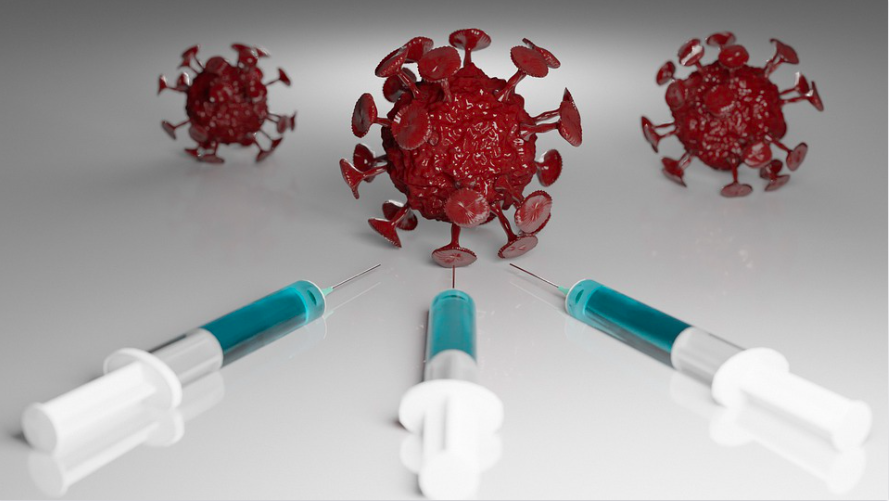The vaccine to police and armed forces is likely to raise numerous protests. The serum at the time indicated for administration to these categories, in fact, would be that of Astrazeneca that it would offer a lower percentage of effectiveness.
Although the World Health Organization has also recommended administration to all people over the age of 18, including those over 65, some representatives of the safety sector have strong doubts. Especially because according to the AIFA, theItalian drug agency, “The indication for the AstraZeneca vaccine remains preferentially for the population between 18 and 55 years and without serious diseases, for which more solid data are available”.
“The choice of administering the Astrazeneca vaccine to members of the State Police, other Police Forces and Armed Forces, ie the one that currently offers the lowest percentage of effectiveness, is inconceivable – he declares Domenico Pianese, general secretary of the Coisp police union – This is the umpteenth demonstration of the approximation with which one approaches the security sector, despite the fact that the State Police alone already counts in its ranks more than 7,500 infected and 8 dead ”.
Doubts about the choice of administering the Astrazenaca vaccine to the armed forces were also expressed by Antonello Ciavarelli, Cocer Marina Militare delegate – Coast Guard, and Pasquale Fico, Cocer Interforze delegate. “Vaccines are welcome for the military, with due precautions and prudence – they explain – but let’s not forget prevention, diagnosis and treatment which are ‘the priorities of priorities’.

Pasquaòe Fico and Antonello Ciavarelli
–
The military is cautious about the administration of vaccines in general – add i delegati Cook – They do not forget, in fact, the recent parliamentary commissions of inquiry which have dealt with the subject. They apply the same caution with respect to the anti-covid vaccine. In fact, we also hear about the administration of vaccines with a low chance of success and not recommended for people over fifty. The cure is the real urgency. The vaccine offers no mathematical certainty, other than the fact that it will take months to administer it on a large scale. The reality is that, like public health, military health too has suffered cuts in economic resources and enlistments. The commendable activity on the part of the military, medical and non-medical, also in this circumstance is the fruit above all of their personal efforts. For years, with resolutions and not only and on all tables, we have highlighted the difficulties of the Armed Forces regarding the exercise and shortage of personnel. With the next economic maneuvers it would be appropriate to intervene swiftly and in a structural way on these issues “.
And the Coisp secretary points the finger at the choice made by the extraordinary Commissioner. “The decision of Commissioner Arcuri it does not take into consideration a plurality of factors – he underlines – starting from the fact that in the Police Forces and in the Armed Forces there are personnel over 55 who cannot be administered the vaccine. The Police Forces, however, were indicated, immediately after the health personnel, among the subjects most exposed to the Covid risk: the policemen have direct contact with infected people, as happens, for example, in the reception and repatriation centers of migrants. This should have suggested the need to reserve for agents the vaccine that offers the highest percentage of efficacy even against variants to the virus, but this was not the case. We are firm supporters of the importance of immunization: this is why we ask for greater attention for the 75% of policemen who have already joined the vaccination plan and in particular for those who cannot be immunized due to age, thus remaining exposed to the infection “. And then he concludes: “The lack of consideration by the Commissioner for the emergency towards the police leaves us deeply disappointed ”.
But the Cocer delegates go further by explaining that “cwhat the military certainly need is prevention, such as the daily distribution of FPP3 masks (100% safe), plastic panels especially for offices open to the public, sanitization and cleaning to be intensified. Furthermore, it would be necessary to carry out tests and swabs with rapid results at least every two weeks “. Because, they say, “it is not at all obvious that the family doctor at the first symptoms intervenes promptly and personally in order to treat the patient. The timing of swabbing, and its results, are uncertain. In the meantime, a possible infection could take over the immune system and health. It would be the case – they conclude – that it would be possible to voluntarily resort to Military Healthcare (which should be subsisting in itself), which could activate treatment protocols that provide for the use of anti-inflammatories, antibiotics, cortisone, heparin, plasma (which many recovered colleagues would be willing to donate) etc .. “.
–

